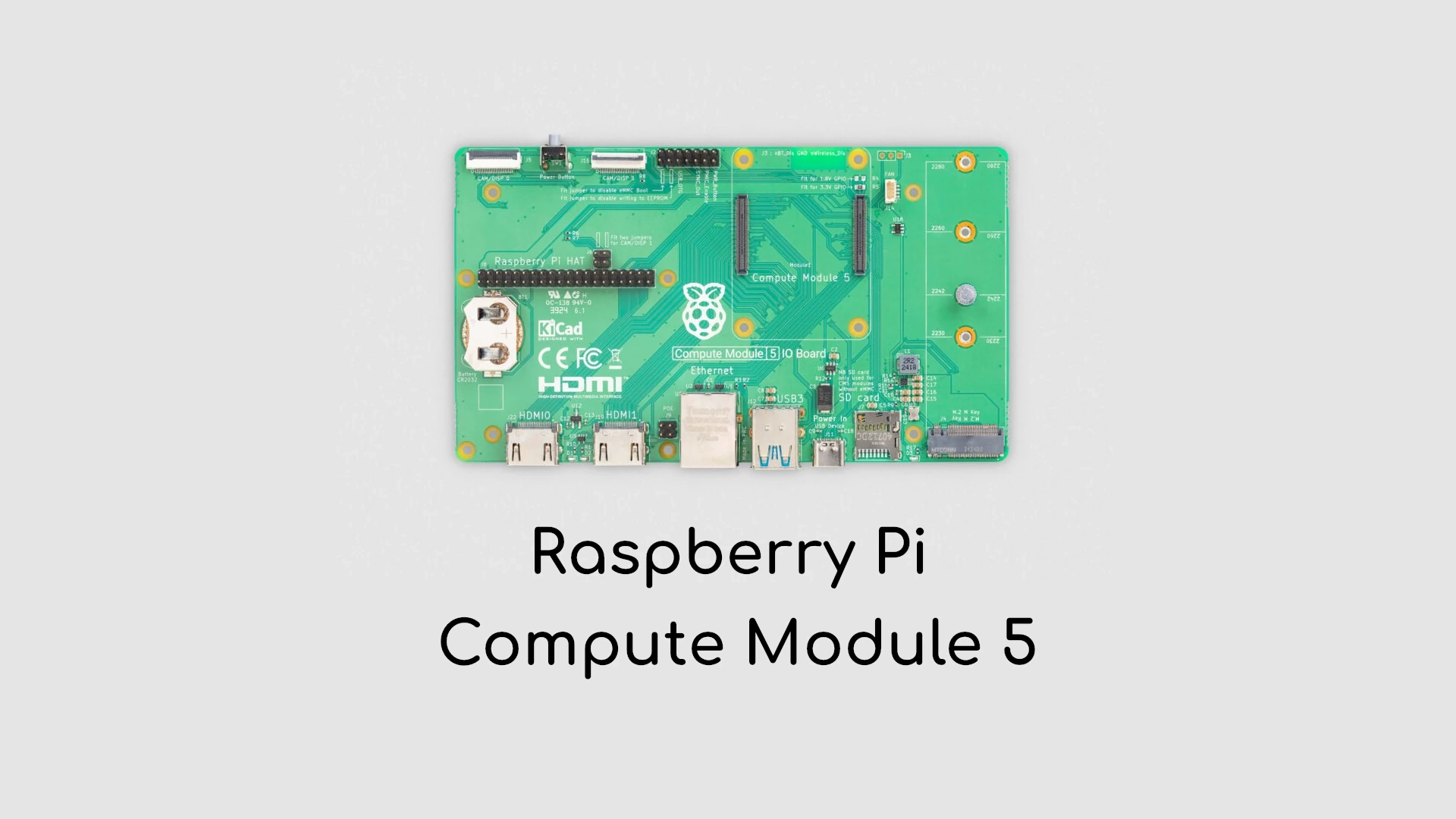The Raspberry Pi Foundation has officially launched the Raspberry Pi Compute Module 5, marking the latest addition to its Compute Module series. This modular version of the Raspberry Pi 5 is powered by a 2.4GHz Quad-Core 64-bit ARM Cortex-A76 processor, and is offered with a choice of 2GB, 4GB, or 8GB of LPDDR4X-4267 SDRAM, alongside MLC eMMC storage options of 16GB, 32GB, or 64GB.
The Compute Module 5 is equipped with a robust VideoCore VII graphics card, which supports OpenGL ES 3.1 and Vulkan 1.3 standards, enabling 4Kp60 HEVC decoding, dual 4Kp60 HDMI outputs, and two 4-lane MIPI camera/display transceivers. Additionally, it features 30 GPIOs capable of operating at 1.8V or 3.3V.
For connectivity, this module offers a PCIe 2.0 x1 interface for high-speed peripherals, two USB 3.0 ports for 5Gbps simultaneous operation, and Gigabit Ethernet with IEEE 1588 support. Optional enhancements include dual-band 802.11ac Wi-Fi and Bluetooth 5.0 capabilities.
The accompanying Raspberry Pi CM 5 IO board comes loaded with a standard 40-pin GPIO connector, two HDMI 2.0 ports, and multiple connectors for MIPI DSI/CSI-2, as well as USB and Gigabit Ethernet with PoE+ support. The design retains mechanical compatibility with its predecessor but introduces increased stability through four mounting holes at each corner.
Eben Upton, the founder and CEO of Raspberry Pi Foundation, emphasized that the Compute Module 5 is tailored to make it simpler for embedded customers to develop custom products that leverage the foundation’s vast investment in hardware and software.
The Raspberry Pi CM 5 is now available for purchase at local retailers, with the 2GB RAM/32GB storage variant priced at $45 USD. A future version featuring 16GB RAM is anticipated for release in 2025. Additionally, the Raspberry Pi Foundation has introduced an extensive Raspberry Pi Development Kit tailored for the Compute Module 5, including various essential accessories.
For more details, you can visit the Raspberry Pi Compute Module 5 product page.
